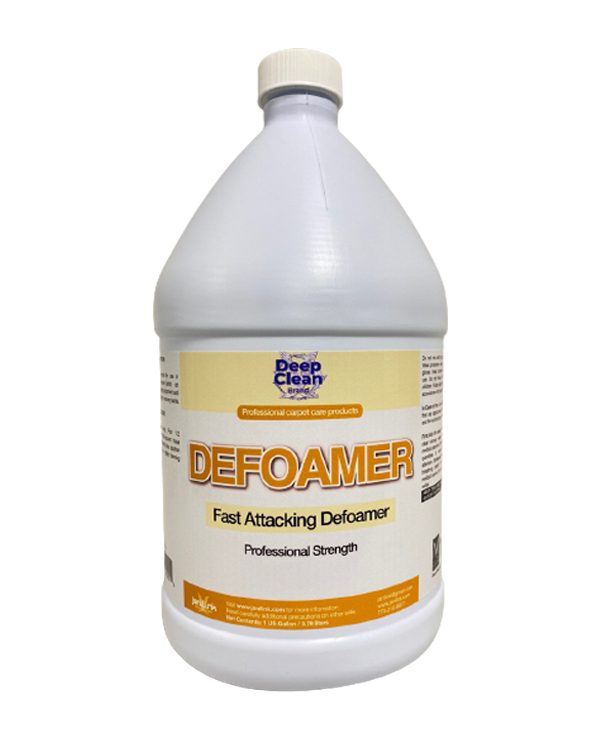Discover the Leading Factors You Need a Chemical Defoamer for Effective Foam Control
In numerous commercial applications, effective foam control is paramount for preserving functional effectiveness and item high quality. Chemical defoamers work as important representatives that minimize foam formation, thus enhancing processes in fields such as food production, pharmaceuticals, and wastewater treatment. Their capability to reduce surface tension not just facilitates quicker foam collapse however also causes significant price savings and boosted source management. As we discover the multifaceted benefits of chemical defoamers, it becomes apparent that their duty expands past mere foam decrease, influencing overall efficiency in means that might not be instantly noticeable.
Improved Functional Efficiency
The visibility of foam can hinder production by blocking devices, reducing capability, and making complex procedure control. By reducing surface area stress, they help with the quick collapse of foam, permitting for smoother procedure and reducing downtime.
In markets such as food and drink, drugs, and wastewater therapy, the application of defoamers enhances procedure security and product high quality. In fermentation processes, managing foam generation is important for optimizing return and efficiency. Additionally, making use of defoamers can lead to extra reliable blending and aeration, leading to enhanced response times and general productivity.
Additionally, when foam is successfully managed, it reduces the threat of overflow and contamination, making certain compliance with safety and security and high quality criteria. This not just enhances procedures but additionally permits better source use. Inevitably, the integration of chemical defoamers right into commercial procedures fosters a more efficient process, enhancing output while preserving top notch standards. Hence, their duty in enhancing operational efficiency can not be overstated.
Expense Financial Savings and Resource Management

In numerous applications, extreme foam can trigger overuse of chemicals, leading to unneeded costs. By managing foam levels, organizations can maximize their chemical input, thereby reducing functional prices.
Additionally, minimized foam in processing systems can enhance the overall throughput, enabling centers to raise production capacity without incurring additional expenses - Chemical Defoamer. This efficient source monitoring equates into significant economic benefits, making it possible for organizations to assign funds toward advancement or growth. In summary, the assimilation of chemical defoamers right into commercial processes promotes an extra cost-effective and resource-efficient setting, eventually supporting organizational development and sustainability
Improved Product Top Quality

Making use of chemical defoamers plays an essential function in improving product quality throughout numerous sectors. Excessive foam can lead to inconsistent item solutions, impacting the final qualities of goods such as paints, finishes, foodstuff, and drugs. By mitigating foam formation, chemical defoamers facilitate smoother manufacturing processes, ensuring that formulations continue to be consistent and meet specified top quality requirements.
In the food and beverage sector, for example, the presence of foam can affect the clarity and preference of items, ultimately influencing customer contentment. Chemical defoamers help keep the desired structure and look, therefore boosting the overall top quality of the end product. In the production of paints and layers, foam can lead to issues such as pinholes and poor link bond, undermining the product's efficiency.
Furthermore, the use of defoamers can improve the performance of procedures like fermentation and emulsification, which are vital for attaining desired item attributes. By improving manufacturing and ensuring constant top quality, chemical defoamers not only boost the end product yet also add to a positive brand track record. Hence, investing in reliable foam control options is necessary for any type of organization intending to provide high-quality items regularly.
Equipment Security and Durability
Lessening foam production is necessary for safeguarding equipment and guaranteeing its long life in different commercial applications. Too much foam can bring about a series of functional you can try this out issues, including tools damages, raised maintenance prices, and unintended downtime. When foam collects, it can create overflow, bring about spills that jeopardize the integrity of machinery and bordering areas.
Furthermore, foam can block sensors and pumps, which can hinder performance and effectiveness. In serious situations, it can result in the break down of parts, necessitating costly repair work or replacements. By using a chemical defoamer, business can successfully alleviate foam development, therefore guarding their equipment from the destructive impacts of foam-related concerns.
In enhancement to avoiding damage, effective foam control can significantly improve the functional life-span of machinery. Investing in a quality chemical defoamer is a proactive technique for securing tools and promoting longevity in industrial settings.
Versatility Throughout Industries
Chemical defoamers play an important function in numerous markets, efficiently addressing foam-related challenges across diverse applications. Their convenience is obvious in sectors such as food and drink, drugs, and wastewater therapy, where foam can reduce and hamper processes effectiveness. In the food industry, defoamers make certain smooth production by protecting against foam development throughout blending, fermentation, and bottling, thereby maintaining item quality and uniformity.

Additionally, in wastewater therapy facilities, chemical defoamers are utilized to control foam throughout the oygenation procedure, promoting optimal microbial activity and boosting the overall therapy efficiency. Their capacity to work effectively in high-temperature and high-shear settings better highlights their versatility.
Verdict
In conclusion, the application of chemical defoamers is imperative for efficient foam control throughout different industries. The convenience of defoamers permits for widespread application in Source food manufacturing, drugs, and wastewater therapy, eventually contributing to lasting growth and the upkeep of high functional criteria (Chemical Defoamer).
Chemical defoamers serve as essential agents that mitigate foam formation, thereby boosting processes in sectors such as food production, drugs, and wastewater treatment. As we discover the diverse advantages of chemical defoamers, it comes to be obvious that their function expands beyond mere foam decrease, influencing total productivity in methods that might not be promptly noticeable.
By alleviating foam formation, chemical defoamers assist in smoother manufacturing processes, guaranteeing that formulations remain uniform and satisfy specific high quality standards.
By utilizing a chemical defoamer, companies can efficiently mitigate foam formation, thus protecting their equipment from the detrimental results of foam-related problems.
In verdict, the application of chemical defoamers is important for reliable foam control across numerous sectors.